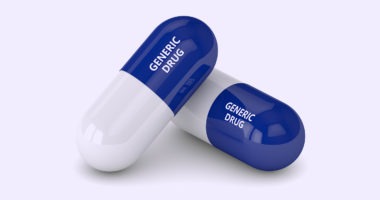US Drug Pricing Reforms Move Forward
Rx drug pricing reform in the US took a major step this week with the passage of a Senate bill, which now goes to the House of Representatives, where it is likely to pass. What is in the plan?
US drug pricing reform: where it stands
The US Senate passed this week (August 7, 2022) a major climate, tax, and healthcare bill, “The Inflation Reduction Act of 2022,” which includes measures to address the cost of prescription drugs in the US. The bill was voted on as part of the budget-reconciliation process with a vote of 51-50, with Vice President Kamala Harris casting the decisive vote as the bill moved with a tied vote of 50-50. The bill now goes to the US House of Representatives for consideration, which is expected to vote on the bill later this week (August 12, 2022). If passed, it would then go to President Joe Biden, who has pledged to sign the bill into law.
Key measures: negotiation of drug prices under Medicare
A key measure in the Senate-passed bill is to authorize and require the US government, through the Department of Health and Human Services (HHS), to negotiate prices for certain prescription drugs under Medicare, the US federal health insurance program for people 65 or older. The measure would apply to drugs under Medicare Part D, which covers most outpatient prescription drugs from pharmacies and other pharmacy providers, and Medicare Part B, which applies to prescription drugs administered in a physician’s office or clinical/hospital outpatient setting.
Currently, the US government is not authorized to negotiate drug prices under Medicare. Allowing the US government to negotiate drug prices has been part of prior legislative and policy proposals, but the Senate-passed bill scales back some of the measures from those earlier proposals. For example, it limits the drug-pricing negotiation plan to drugs covered under Medicare and does not include products covered under private insurance. It also limits the number and type of drugs eligible to be negotiated under the drug-pricing plan. For example, the plan applies only to “high-cost” drugs defined by levels of Medicare spending, “older” drugs, defined on the basis of the number of years from when a drug was approved by the US Food and Drug Administration (FDA), and drugs without generic-drug and biosimilar competition. A recent analysis by KFF, an independent non-profit organization focused on national health issues, highlighted key provisions of the Senate-passed bill as outlined below (1).
Number and types of drugs subject to price negotiations. The Senate-passed bill would establish a drug-price negotiation program within the HHS under which the HHS Secretary would select a specified number of drugs from a list of 50 “negotiation-eligible drugs” with the highest Medicare Part D spending and from a list of 50 “negotiation-eligible drugs” with the highest Medicare Part B spending over a given 12-month period. It would limit the number of eligible drugs for negotiations to 10 Medicare Part D drugs in 2026, 15 Medicare Part D drugs in 2027, 15 Medicare Part B and D drugs in 2028, and 20 Medicare Part B and D drugs in 2029 and thereafter.
“Negotiation-eligible” drugs include brand-name drugs but would exclude the following types of drugs:
- Drugs that have a generic or biosimilar available;
- Small-molecule drugs with less than nine years from their approval date by the US Food and Drug Administration (FDA) and biologic-based drugs with less than 13 years from their licensure date by the FDA;
- Certain “small biotech drugs,” defined as drugs that account for no more than 1% of Medicare spending for all drugs from all manufacturers and that account for at least 80% of total 2021 Medicare spending for all drugs from a given manufacturer (this exclusion applies only in 2026, 2027, and 2028);
- Drugs that accounted for less than $200 million in Medicare spending in 2021;
- Drugs with an orphan-drug designation as the only-FDA approved indication; and
- Plasma-derived products.
Maximum fair price. A maximum fair price would be determined by setting the upper limit of a negotiated price to be equal to the lower of three possible conditions: (1) the drug’s enrollment-weighted negotiated price (net of price concessions) for a Medicare Part D drug; (2) the average sales price of a Medicare Part B drug; or (3) a percentage of the non-federal average manufacturer price (referring to the average price wholesalers pay manufacturers to distribute their drugs to non-federal purchasers) based on FDA approval dates. For this condition, that percentage would be 75% for small-molecule drugs with more than nine years but less than 12 years beyond FDA approval, 65% for drugs with between 12 and 16 years beyond FDA approval, and 40% for drugs with more than 16 years beyond FDA approval.
Penalties for non-compliance. Drug manufactures would face financial penalties for non-compliance in the form of an excise tax that would be imposed for not negotiating prices with the HHS Secretary. That excise tax would start at 65% of the drug’s prior-year sales and increase by 10% each quarter, up to 95%. The excise tax would be suspended if a drug manufacturer decides not to have that drug covered under Medicare or Medicaid, the US government healthcare program for lower-income individuals. A civil monetary penalty would also be imposed on drug manufacturers not offering the agreed maximum fair price; that penalty would be up to 10 times the difference between the price charged and the negotiated price.
Other measures: rebates, capping out-of-pocket costs
The Senate-passed bill also includes other measures for drug pricing under Medicare as outlined below.
Rebates for drug price increases above inflation. Under the bill, beginning in 2023, drug manufacturers would be required to pay a rebate if prices for certain types of drugs under Medicare increase faster than the rate of inflation. The rebate would apply to single-source drugs and biologics under Medicare Part B as well as to all drugs covered under Medicare Part D, except for those drugs whose average annual costs are less than $100.
Capping out-of-pockets costs under Medicare. The Senate-passed bill would also cap out-of-pocket costs for prescription drugs for Medicare recipients at $2,000 per year, effective in 2025. It would also require from drug companies a price discount on brand name drugs above the out-of-pocket spending cap and modifies the price discount on brands below the out-of-pocket spending cap.
Extending implementation timeline of a drug rebate rule. The Senate-passed bill would also further move the implementation date to 2032 of a drug rebate rule first initiated under the Trump Administration that would eliminate rebates negotiated between drug manufacturers and pharmacy benefit managers or health plan sponsors in Medicare Part D by removing the safe harbor protection currently extended to these rebate arrangements under the federal anti-kickback statute. The Biden Administration had first delayed the implementation date to 2023 and subsequent legislation moved the implementation date to 2027. The Senate-passed bill would move the implementation date to 2032.
Limiting co-pays of insulin to $35 under Medicare. The Senate-passed bill would also limit co-payments to $35 per month for covered insulin products under Medicare Part D and for insulin provided from medical durable equipment under Medicare Part B, beginning in 2023. For 2026 and beyond, the bill would limit Medicare Part D co-payments to the lesser of: (1) $35; (2) 25% of the negotiated maximum fair price, if the product is subject to negotiation; or (3) 25% of the negotiated price in Medicare D plans.
Reducing costs and increasing coverage of vaccines. The Senate-passed bill would also reduce costs and improve coverage for adult vaccines under Medicare and Medicaid and in the Children’s Health Insurance Program, effective in 2023.
Industry feedback
The innovator drug industry strongly opposes the Senate-passed bill and raises concerns that the bill does not address issues of affordability for prescription drugs and would have a negative impact on research and development and product innovation. Both the Pharmaceutical Research and Manufacturers of America (PhRMA) and the Biotechnology Innovation Organization (BIO) issued statements opposing the bill.
“They say this is ‘negotiation,’ but the bill gives the government unchecked authority to set the price of medicines,” said PhRMA’s President and CEO Stephen J. Ubl, in an August 7, 2022 statement. “And they say the bill won’t harm innovation, but various experts, biotech investors and patient advocates agree that this bill will lead to fewer new cures and treatments for patients battling cancer, Alzheimer’s and other diseases.”
BIO also issued criticism of the Senate-passed bill. “…[E]very credible analysis of the Inflation Reduction Act comes to the same conclusion: fewer cures for patients,” said BIO’s President and CEO Dr. Michelle McMurry-Heath in an August 7, 2022 statement. “For that reason, we remain in staunch opposition to the government price control schemes included in the final reconciliation package passed today [August 7, 2022].”
BIO’s McMurry-Heath further commented that while the organization has frequently voiced its support for capping out-of-pocket costs for products covered under Medicare Part D, it has strong concerns the impact the bill will have on research and new product development, particularly for small bio/pharmaceutical companies.
She also commented that the bill does not address the drug-rebate system, which she says is a major contributor to drug costs. “It [the Senate-passed bill] also marks a missed opportunity by this Congress to address the true cause of rising out-of-pocket costs for patients. We greatly appreciate the attempt to include reforms to the PBM [pharmacy benefit manager] rebate system that would have helped patients at the pharmacy counter, but unfortunately the bill at final passage remains bereft of any provisions that systematically and holistically tackle the biggest drivers of out-of-pocket costs in our system.”
The generic-drug industry also voiced its opposition to the bill. The Association for Accessible Medicines (AAM) and the Biosimilars Council, which represent generic-drug and biosimilar companies and manufacturers, commented on what it sees as the negative impact of the drug pricing plan and the need for further measures to encourage use of generics and biosimilars.
“While the bill’s ill-advised price setting scheme will harm Medicare and seniors, its negative impact will extend to employers and patients that rely on generic and biosimilar medicines to keep costs down,” said Dan Leonard, AAM’s CEO and President in an August 7, 2022 statement. “…A few of AAM’s specific policy recommendations, including encouraging generic and biosimilars adoption by ending the Part D benefit coverage gap discount program and increasing plan liability in the catastrophic phase and increasing physicians’ incentives to use biosimilars over more expensive innovator biologics (ASP+8%) were adopted under the budget reconciliation construct, but the association and its members will continue to aggressively advocate for additional, more systemic measures that preserve and enhance the tools that drive generic and biosimilar competition and patient access and savings.”
Reference
1.“Understanding the Health Care Provisions in the Inflation Reduction Act,” KFF, accessed August 11, 2022, https://www.kff.org/slideshow/what-are-the-prescription-drug-provisions-in-the-inflation-reduction-act/






